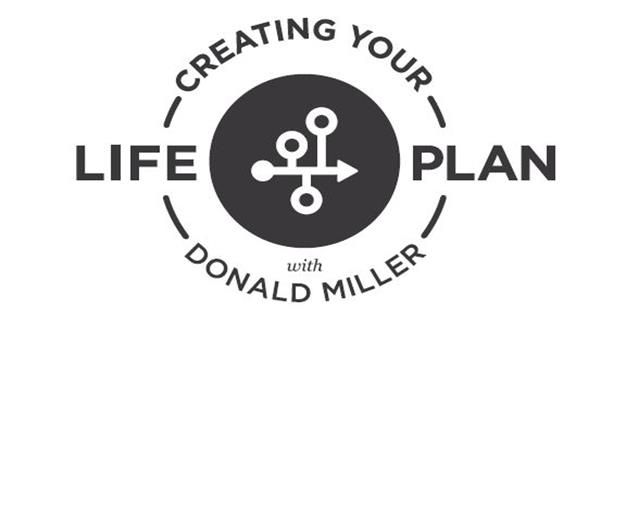Evangelism Resources
The social services program, Pathway of Hope is designed to bring together the resources of our community, our social services, and the corps congregations to help families walk the pathway from Crisis toward sufficiency.
Women’s Ministries is a perfect way to introduce POH families to the benefits of a supportive corps community. As women get to know women, we offer a natural connection to pastoral care, worship and activities for the whole family.
Watch the videos on the our website www.ucswomensministries.com/poh to get ideas and instruction on how to begin this partnership.

To encourage attendance at appointments or celebrate reaching goals: your women’s and men’s ministries could provide items for “incentive gifts” – fun but practical items arranged in an attractive gift bag, basket or box.
These baskets are unlimited: But we’ve listed Here are a few ideas to get you started
-Laundry basket – non fragrance laundry soap, dryer sheets, stain remover
-Family Reading/ Video Basket: age appropriate videos, and books; Children Bible stories, adult Bible or devotionals, age appropriate work books
-Home Improvement Basket: Swiffer, paper towels, garbage bags, liquid hand soaps, scented “plug ins”
-Family Activities basket: games, crafting items – children’s scissors, glue, crayons, coloring books
-Home beautification basket: “Welcome” sign; centerpiece for table; recipe for a casserole with items included,
Be creative – just checking with the caseworker as to appropriateness of the items you’d like to include.





Learning your own story and testimony
It’s difficult to tell your story and testimony when you’re not even sure you could tell yourself.
We’ve found a few resources that a women’s group could do together to help become more comfortable sharing their life and faith experience.
Learning your own story and testimony
Pages 26-30 is an worksheet that helps Christians at any stage describe their testimony. This could be adapted into sessions for a focus group or fourfold program
Before I Accepted Christ (or gave Him complete control)
- What was my life like that will relate most to the non-Christian?
- What did my life revolve around the most? What did I get my security or happiness from? (The non-Christian is relying on something external to give him happiness)
- How did those areas begin to let me down?
How I Received Christ (or gave Him complete control)
- When was the first time I heard the gospel? (Or when was I exposed to dynamic Christianity)
- What were my initial reactions?
- When did my attitude begin to turn around? Why?
- What were the final struggles that went through my mind just before I accepted Christ?
- Why did I go ahead and accept Christ?
After I Accepted Christ (or gave Him complete control)
- Specific changes and illustrations about the changes Christ has made:
- Why am I motivated differently?
Helpful Hints
- Write the way you speak; make the testimony yours.
- Practice this over and over until it becomes natural.
- Shoot for short — 3 minutes. At that length, it’s easily something you can put into a conversation without it becoming a monologue.
An example: Look at Paul’s testimony as you consider how to tell your story.
His life before (Acts 22:1-5)
- Paul describes what he thought and did before he became a believer.
- Your goal: to give specific, yet appropriate, examples of what your life was like (attitudes, needs, problems) before Christ.
- Remember that examples you give will establish you as a credible witness in the minds of non-Christians. However, avoid a religious focus. (You want to make it about Jesus and your need for Him.) Don’t spend a great amount of time talking about church activities or denominations before your life began to change. Likewise, avoid being explicit and sensational in speaking of drugs, immorality, crime or drunkenness.
How (Acts 22:6-11)
- Paul explained how he became a believer.
- Your goal: to allow the listener to walk away with a clear understanding of how you became a Christian and how he or she can trust Christ as the payment for their sins.
- Be careful not to use clichés and church language. Talk in terms they’ll understand.
After (Acts 22:12-21)
- Paul explained how becoming a believer changed his life.
- Your goal: to explain specific ways Christ has changed your life — to show that having Christ in your life really does make a difference!
Avoid using general statements such as “I have so much peace now.” Be specific. It is the Holy Spirit’s responsibility to draw someone to Christ, but you want to communicate your story in such a way to show the listener that your life is different and more meaningful with Christ.
Learning your own story and testimony
- What were my initial reactions?
- When did my attitude begin to turn around? Why?
- What were the final struggles that went through my mind just before I accepted Christ?
- Why did I go ahead and accept Christ?
After I Accepted Christ (or gave Him complete control)
- Specific changes and illustrations about the changes Christ has made:
- Why am I motivated differently?
Helpful Hints
- Write the way you speak; make the testimony yours.
- Practice this over and over until it becomes natural.
- Shoot for short — 3 minutes. At that length, it’s easily something you can put into a conversation without it becoming a monologue.
An example: Look at Paul’s testimony as you consider how to tell your story.
His life before (Acts 22:1-5)
- Paul describes what he thought and did before he became a believer.
- Your goal: to give specific, yet appropriate, examples of what your life was like (attitudes, needs, problems) before Christ.
- Remember that examples you give will establish you as a credible witness in the minds of non-Christians. However, avoid a religious focus. (You want to make it about Jesus and your need for Him.) Don’t spend a great amount of time talking about church activities or denominations before your life began to change. Likewise, avoid being explicit and sensational in speaking of drugs, immorality, crime or drunkenness.
How (Acts 22:6-11)
- Paul explained how he became a believer.
- Your goal: to allow the listener to walk away with a clear understanding of how you became a Christian and how he or she can trust Christ as the payment for their sins.
- Be careful not to use clichés and church language. Talk in terms they’ll understand.
After (Acts 22:12-21)
- Paul explained how becoming a believer changed his life.
- Your goal: to explain specific ways Christ has changed your life — to show that having Christ in your life really does make a difference!
Avoid using general statements such as “I have so much peace now.” Be specific. It is the Holy Spirit’s responsibility to draw someone to Christ, but you want to communicate your story in such a way to show the listener that your life is different and more meaningful with Christ.
Learning your own story and testimony
- Why am I motivated differently?
Helpful Hints
- Write the way you speak; make the testimony yours.
- Practice this over and over until it becomes natural.
- Shoot for short — 3 minutes. At that length, it’s easily something you can put into a conversation without it becoming a monologue.
An example: Look at Paul’s testimony as you consider how to tell your story.
His life before (Acts 22:1-5)
- Paul describes what he thought and did before he became a believer.
- Be careful not to use clichés and church language. Talk in terms they’ll understand.
After (Acts 22:12-21)
Learning your own story and testimony
- Your goal: to give specific, yet appropriate, examples of what your life was like (attitudes, needs, problems) before Christ.
- Remember that examples you give will establish you as a credible witness in the minds of non-Christians. However, avoid a religious focus. (You want to make it about Jesus and your need for Him.) Don’t spend a great amount of time talking about church activities or denominations before your life began to change. Likewise, avoid being explicit and sensational in speaking of drugs, immorality, crime or drunkenness.
How (Acts 22:6-11)
- Paul explained how he became a believer.
- Your goal: to allow the listener to walk away with a clear understanding of how you became a Christian and how he or she can trust Christ as the payment for their sins.
- Be careful not to use clichés and church language. Talk in terms they’ll understand.
Learning your own story and testimony
- Paul explained how becoming a believer changed his life.
- Your goal: to explain specific ways Christ has changed your life — to show that having Christ in your life really does make a difference!
Avoid using general statements such as “I have so much peace now.” Be specific. It is the Holy Spirit’s responsibility to draw someone to Christ, but you want to communicate your story in such a way to show the listener that your life is different and more meaningful with Christ.
This resource is from:
https://www.cru.org/train-and-grow/how-to-tell-your-story-worksheet.html
Outreach event ideas:
- Movie in the Park(ing lot)
- Find out when the community is having an outdoor event and ask to have a booth
- Parenting Classes
- Film Fest Night—Use www.globalshortfilmnetwork.com—watch short films with discussion questions after
- Film Fest Night— videos of testimonies Www.iamsecond.com Have discussion after each video with provided PDF of questions

“I tell you, open your eyes and look at the fields! They are ripe for harvest.” John 4:35
Incarnational Living
Encourage the women in your sphere of influence to flourish; growing and loving right where God has planted them. This means being invested in the place and space that you live, growing in your community and developing relationships with your neighbors. The incarnational aspect, bringing the Good News of Jesus. This has little to do directly with the corps, this isn’t about bringing in more people. The goal is to teach corps members to be relational with their neighbors—a great outcome would be new corps members. But again it’s not the goal.
- First, prayer for your neighbors!
- Pray that you’ll be lead by the Spirit.
- Backyard outdoor movie night
- Block Party
- Backyard BBQ
- Organize a Neighborhood Garage Sale Day
- Ask for a cup of sugar, or can opener, something to connect and break the ice
“I tell you, open your eyes and look at the fields! They are ripe for harvest.” John 4:35
Try this resource, a 14 Day Guide to Love Your Neighbor

https://www.sandrapeoples.com/wp-content/uploads/2013/01/Love-Your-Neighbor-by-Sandra-Peoples.pdf

